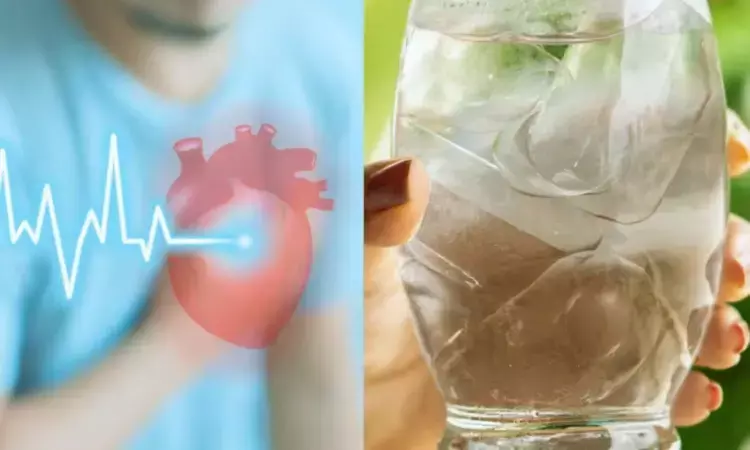- Home
- Medical news & Guidelines
- Anesthesiology
- Cardiology and CTVS
- Critical Care
- Dentistry
- Dermatology
- Diabetes and Endocrinology
- ENT
- Gastroenterology
- Medicine
- Nephrology
- Neurology
- Obstretics-Gynaecology
- Oncology
- Ophthalmology
- Orthopaedics
- Pediatrics-Neonatology
- Psychiatry
- Pulmonology
- Radiology
- Surgery
- Urology
- Laboratory Medicine
- Diet
- Nursing
- Paramedical
- Physiotherapy
- Health news
- Fact Check
- Bone Health Fact Check
- Brain Health Fact Check
- Cancer Related Fact Check
- Child Care Fact Check
- Dental and oral health fact check
- Diabetes and metabolic health fact check
- Diet and Nutrition Fact Check
- Eye and ENT Care Fact Check
- Fitness fact check
- Gut health fact check
- Heart health fact check
- Kidney health fact check
- Medical education fact check
- Men's health fact check
- Respiratory fact check
- Skin and hair care fact check
- Vaccine and Immunization fact check
- Women's health fact check
- AYUSH
- State News
- Andaman and Nicobar Islands
- Andhra Pradesh
- Arunachal Pradesh
- Assam
- Bihar
- Chandigarh
- Chattisgarh
- Dadra and Nagar Haveli
- Daman and Diu
- Delhi
- Goa
- Gujarat
- Haryana
- Himachal Pradesh
- Jammu & Kashmir
- Jharkhand
- Karnataka
- Kerala
- Ladakh
- Lakshadweep
- Madhya Pradesh
- Maharashtra
- Manipur
- Meghalaya
- Mizoram
- Nagaland
- Odisha
- Puducherry
- Punjab
- Rajasthan
- Sikkim
- Tamil Nadu
- Telangana
- Tripura
- Uttar Pradesh
- Uttrakhand
- West Bengal
- Medical Education
- Industry
Cool Drinks Linked to Afib Episodes: Survey Finds Lifestyle Impact

USA: Researchers have found in a cross-sectional survey that many individuals with atrial fibrillation (AFib) experienced fewer episodes by avoiding cold drinks and foods like ice water, smoothies, and ice cream. Strategies included letting beverages reach room temperature and avoiding straws. Despite patient-reported improvements, healthcare providers often dismissed the "cold drink heart" (CDH) phenomenon.
The study published in Journal of Cardiovascular Electrophysiology and led by Daniel D. DiLena from Kaiser permanente, Northern California, sheds light on comparative under recognized trigger of atrial fibrillation. The research focused on the 'cold drink heart' phenomenon, a term used to describe atrial fibrillation episodes that are triggered specifically by the intake of cold consumables.
The investigators conducted a mixed-methods study involving a detailed patient survey supplemented by chart reviews. Participants were either approached during emergency department visits for AFib or reached out to the study team directly. The survey collected data on demographics, clinical history, and the nature of AFib episodes, particularly those linked to cold consumption.
The key findings were as follows:
- A total of 101 patients participated in the study, with 75% being male.
- The median age at onset of cold drink-triggered atrial fibrillation (CDH) was 44.5 years.
- 51.5% of respondents reported that their AFib episodes occurred exclusively after consuming cold drinks or foods.
- Many patients experienced a rapid onset of arrhythmia following cold ingestion.
- A significant number of episodes were associated with recent physical exertion.
- 86.4% of participants reported a reduction or complete elimination of AFib episodes after avoiding cold consumables.
- Among patients with only CDH-triggered episodes, 100% experienced prevention of recurrence through lifestyle modifications.
Despite these clear patterns observed by patients, the medical community appears to have limited awareness of the phenomenon. According to the survey, more than half of the participants (52.4%) felt that their experiences with CDH were dismissed or not taken seriously by healthcare providers. This disconnect underscores the need for increased clinician awareness and a more patient-centered approach to managing AFib.
The findings point toward a potential non-pharmacological strategy for certain AFib patients. Avoiding specific triggers, such as cold drinks, could offer a simple and effective way to manage arrhythmia recurrence in affected individuals.
While these observations are promising, the researchers emphasize the need for further investigation to establish definitive clinical guidance. Controlled studies are warranted to validate CDH as a recognized trigger and to develop tailored management approaches.
The authors concluded, "The study brings attention to a unique but impactful trigger of AFib and highlights the importance of listening to patient-reported experiences in shaping personalized care strategies."
Reference:
DiLena, D. D., Zhang, J. Y., Rauchwerger, A. S., Reed, M. E., Marcus, G. M., Warton, E. M., & Vinson, D. R. Characterizing Patients With Cold Drink-Triggered Atrial Fibrillation. Journal of Cardiovascular Electrophysiology. https://doi.org/10.1111/jce.16753
Dr Prem Aggarwal, (MD Medicine, DNB Medicine, DNB Cardiology) is a Cardiologist by profession and also the Co-founder and Chairman of Medical Dialogues. He focuses on news and perspectives about cardiology, and medicine related developments at Medical Dialogues. He can be reached out at drprem@medicaldialogues.in


